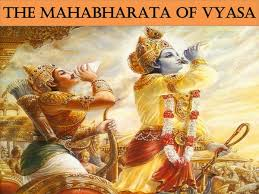Don Quixote: A Timeless Masterpiece of Satire and Imagination
"Don Quixote" by Miguel de Cervantes is a classic novel that was first published in 1605. The book tells the story of a man named Alonso Quixano, who becomes so enamored with the tales of chivalry and romance that he decides to become a knight himself. He takes the name Don Quixote and sets out on a series of adventures with his loyal squire, Sancho Panza.
The book is divided into two parts, with the first part focusing on Don Quixote's adventures as a knight-errant. In this part of the book, Don Quixote travels around the Spanish countryside, seeking out adventures and trying to right wrongs. However, his efforts often lead to comical misunderstandings and mishaps, as he misinterprets the world around him and mistakes windmills for giants and flocks of sheep for armies.
Along the way, Don Quixote encounters a variety of characters, including innkeepers, shepherds, and ladies in distress. He also meets a young woman named Dulcinea del Toboso, whom he believes to be the epitome of feminine beauty and purity. Although Dulcinea is a figment of his imagination, Don Quixote is convinced that he must perform great deeds in her honor.
The second part of the book picks up where the first part left off, with Don Quixote still on his quest for adventure. However, in this part of the book, Cervantes introduces a new element: other characters who have read the first part of the book and are aware of Don Quixote's delusions. These characters set out to play pranks on Don Quixote, hoping to cure him of his madness.
Despite the mockery he faces, Don Quixote remains steadfast in his beliefs and continues to pursue his quest. However, his adventures become increasingly dangerous and he eventually suffers a series of defeats. In the end, Don Quixote returns home, where he dies of a fever brought on by his injuries.
Throughout the book, Cervantes uses humor and satire to critique the society of his time. He pokes fun at the ideals of chivalry and the romance genre, as well as at the political and social institutions of Spain. At the same time, he creates a complex and sympathetic character in Don Quixote, who embodies both the absurdity and the nobility of the human spirit.
In addition to its exploration of the human condition and the power of imagination, "Don Quixote" is also notable for its innovative narrative structure. Cervantes employs a metafictional technique, in which the characters within the novel are aware of the fact that they are in a book. This allows Cervantes to comment on the art of storytelling and to play with the expectations of his readers.
The book also includes a range of themes that are still relevant today, including the tension between reality and fantasy, the role of literature in shaping our beliefs, and the search for meaning in a chaotic world. It is a deeply philosophical work that invites readers to reflect on their own lives and experiences.
Although "Don Quixote" is often regarded as a comic novel, it also has moments of profound tragedy and pathos. The character of Don Quixote is a tragic figure, whose delusions ultimately lead to his downfall. However, his spirit and idealism continue to inspire readers to this day.
In addition to its literary significance, "Don Quixote" has had a lasting impact on popular culture. The character of Don Quixote has appeared in numerous adaptations, including films, plays, and operas. His influence can be seen in everything from the modern superhero genre to the world of advertising.
Overall, "Don Quixote" is a timeless masterpiece that continues to captivate and inspire readers centuries after its publication. It is a testament to the power of literature to transcend time and space, and to illuminate the complexities of the human experience."Don Quixote" is a masterpiece of Spanish literature that continues to be read and studied around the world. It is a humorous and poignant exploration of the human condition, and a celebration of the power of the imagination.



Comments
Post a Comment